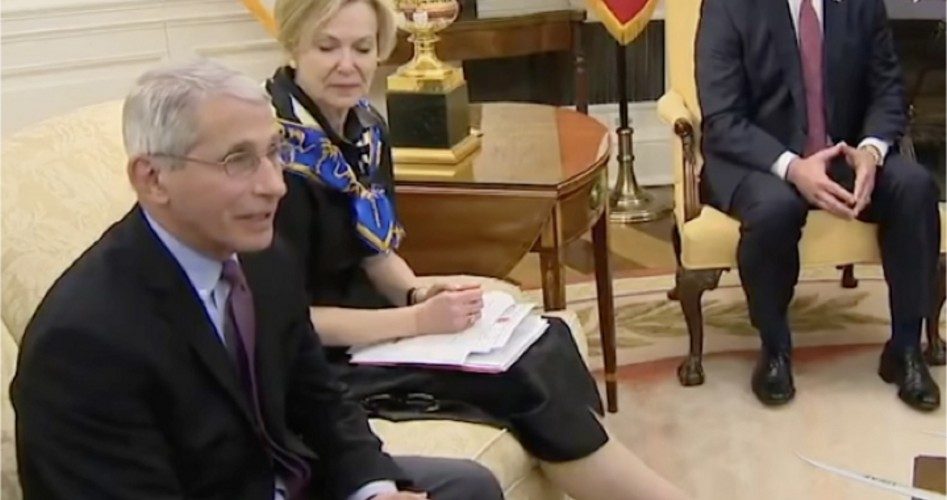
“What difference at this point does it make?”
Those were the infamous words used by then-Secretary of State Hillary Clinton during her January 2013 testimony to the U.S. Senate, in response to Senator Ron Johnson (R-Wis.), when he accused the Obama administration, including Clinton, of misleading the American people about what caused the attack on the U.S. consulate in Benghazi, Libya.
During the attack in 2012, four Americans were killed, including Ambassador Chris Stevens. Clinton and the rest of the Obama administration argued that the attack was a spontaneous attack, in reaction to a video ridiculing the prophet Muhammad. Despite this assertion, it is clear that the video had little to nothing to do with the attack, but was rather a planned attack by Ansar al-Sharia, a terrorist group.
Rather than simply admit that the Obama administration had misled the American people, Clinton retorted, “Four Americans are dead. What difference at this point does it make?”
Although Clinton was clearly saying that it made no difference then why the four Americans were tragically dead, regardless of whether it was the result of a spontaneous reaction to a video or an orchestrated attack that had nothing to do with the video, her words were a diversion from the real issue — the Obama administration had repeatedly told the American people something that was not true.
“When someone tries to put into a partisan lens, when they focus not on the fact that we have such a terrible event happening with four dead Americans but instead what did somebody say on a Sunday morning talk show?” Clinton later told a sympathetic reporter.
The “somebody” who told the falsehood on multiple Sunday morning talk shows was Obama’s UN Ambassador, Susan Rice — using talking points provided to her by the CIA. She insisted that the attack was the result of Muslim anger at a video, not a planned terrorist attack. (The Obama administration was making the case that there had been no terrorist attacks on the United States during his tenure.)
After Clinton’s testimony, Democrats and their allies in the media generally rallied to her defense, arguing that she had bested the Republican senators challenging her lack of response to the Benghazi attack. Republicans, on the other hand, contended that her testimony was a disaster for her. In fact, her defensive comment, “What difference at this point does it make?” was used against her during the 2016 presidential campaign.
Governor Mike Pence of Indiana, running for vice president during that campaign, said, “As the proud father of a United States Marine, let me say from my heart: Anyone who said that, anyone who did that should be disqualified from ever serving as commander-in-chief of the Armed Forces of the United States of America.”
Of course, in the heat of a political campaign, it is not surprising that Democrats and Republicans are going to defend their own candidates and put the worst possible spin on the words of their opponents. What is surprising is the reaction of Dr. Anthony Fauci, the director of the National Institute of Allergy and Infectious Diseases, a position he has held since 1984.
One would think that a person in Dr. Fauci’s position would have nothing to say about an intense political battle over who was responsible for the deaths of four Americans in Benghazi, or Hillary Clinton’s defense of the Obama administration’s response.
But Fauci (shown) sent an e-mail on the day of Clinton’s testimony to her aide, Cheryl Mills, an e-mail that Mills forwarded onto Hillary Clinton, with the comment, “From you[r] doctor admirer.”
In the e-mail, Fauci makes it very clear that he is an “admirer” of Hillary Clinton: “Anyone who had any doubts about the Secretary’s stamina and capability following her illness had those doubts washed away by today’s performance before the Senate and the House. She faced extremely difficult circumstances at the Hearings and still she hit it right out of the park. Please tell her that we all love her and are very proud to know her.”
The e-mail was one of the many e-mails made public by WikiLeaks. Were it not for that, we would not now have concrete evidence that Anthony Fauci was a huge admirer of Hillary Clinton.
One can only speculate as to why Fauci would send such an e-mail. Taking it at its face, it would seem that Fauci was, as Mills described the e-mail, an admirer of Clinton. One can then presume that Fauci is not non-ideological. Others might argue that Fauci was simply trying to ingratiate himself with the person he thought might be the next president of the United States. But it is highly unlikely that would be necessary for a person who had been in his job through eight years of the administration of Clinton’s husband, and then eight years of the Obama administration.
Defenders of Fauci — and enemies of President Donald Trump — often argue that Dr. Fauci is just a dedicated public servant, who has no interest in the politics of the COVID-19 pandemic and is not taking a political side when making recommendations and public statements. But the fact that the woman whom Fauci loved and was “very proud” to know — Hillary Clinton — was defeated by Trump in the 2016 presidential campaign should at least cause some interest from the media.
If the roles were reversed — and if Dr. Fauci were in his same position with a Hillary Clinton presidency, and it came out that Fauci had written an e-mail praising a political opponent of Hillary Clinton — would the media think that was of some interest?
Image of Anthony Fauci: Screenshot of a YouTube video by NBC
Steve Byas is a university instructor of history and government and the author of the book, History’s Greatest Libels. He may be contacted at [email protected].



